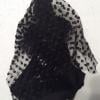Search the Community
Showing results for 'reactive hypo'.
Found 1,426 results
-


Reactive Hypoglycemia After Bariatric Surgery
moonlitestarbrite replied to RJ'S/beginning's topic in Post-op Diets and Questions
yup, i had this when i was pregnant. i highly recommend getting a blood sugar monitor to check blood glucose levels before and after eating and exercise to see how food and exercise affects you. it's different for everyone. some people get high surges and then drops. some people are only reactive to high GI foods, so people are reactive to not eating enough carbs, some people have sudden drops whenever they eat. if you track your BGL you will be able to more easily treat it. -
3.5 years post op.. My blood pressure came down, hypo thyroid meds decreased.... Blood sugar lowered... Cholesterol lowered... I have a herniated disc in my neck that I had to have an epideral injection into ever 3 months but with the weight lose I only get one a year. Joint pain has greatly improved. I didn't have a lot of diagnosis medical problems but if I did nothin for another two years it would have been bad.. I'm 35 now.. And wish I would have done this sooner, just for the health benefits
-


I am scared to get GERD, please give me advice
RickM replied to AchieveGoals's topic in Gastric Sleeve Surgery Forums
Most any surgery that you can contemplate, in addition to the basic risks associated with surgery, hospitals and anesthesia, will have some risk of side effects that may be less than desirable, however we take those risks in order to correct a problem that we have created by injury, disease or genetics, with the intent that the result will be much better than what we started with. The various bariatric procedures have different predispositions to consider - conditions that happen more commonly than in the general population. The VSG is predisposed to GERD as the stomach volume is reduced much more than its' acid producing potential, and while usually the body adjusts and corrects the problem, sometimes it doesn't completely. Similarly, the RNY is predisposed to marginal ulcers (typically around the anastomosis) because the part of intestine to which the stomach pouch is attached is not resistant to the stomach acid like the duodenum is (the part of intestine immediately below the stomach outlet, which is bypassed along with the remnant stomach.) Likewise, it is also predisposed to dumping and reactive hypoglycemia owing to more rapid stomach emptying due to the lack of pyloric valve. Usually, these problems don't hit most patients, or don't persist if they do, but sometimes they are long term problems. These are things to consider ahead of time, particularly if one has any relevant pre-existing condition. Another consideration is that the VSG is fairly easy to revise if it does run into a problem that can't be resolved otherwise, while the RNY is difficult to revise or reverse. Another point to consider is that while the sleeve leaves behind a relatively "normal" anatomy, the bypass leaves a blind stomach and upper intestine which is more difficult to examine endoscopically, so some problems may not be diagnosed until they are more advanced and symptomatic. For instance, if one is subject to stomach polyps, that is a pre-cancerous condition that should be monitored, but is difficult to do after a bypass. An pre-op endoscopy is a good idea to understand what is happening inside you, even if your program doesn't require one. On the diabetes front, they both do well, typically seeing 75-85% remission rates (remission is what it is, rather than a "cure" - it can come back, particularly with some weight regain) though the bypass is generally considered to be marginally better. The best results come from the Duodenal Switch which typically shows remission rates in the 98-99% range, but that is a more complex procedure that few surgeons offer. However, if the diabetes fails to go into remission, or comes back, after a VSG, a revision to the DS is straightforward (as the DS uses the VSG as its basis) while revising an RNY to a DS is very complicated, which only a handful of surgeons are able to perform. So, while the VSG may not be quite as good as the RNY in that respect, it has a much more viable "plan B". -
I went from Hyper thyroid to Hypo thyroid now. Last year I was diagnosed with Graves disease, was severely Hyper thyroid. Yes, my WLS surgeon and his endocrinologist picked up on it. My WLS had to be put on hold. Had Radioactive Iodine last August 2015, went Hypo thyroid December 2015. On Thyroxine since January 2016. At least it is only one tiny tablet per day, versus 16-20 I had to take daily, when I was Hyper thyroid! Both Hyper and Hypo suck! I am also concerned re: slower weight loss now. I am 24 days post op, so too early to see re my weight loss. I know, it is no good to compare myself with other people. I am glad that I can connect with other Thyroid members
-
There are still some unanswered questions regarding the causes of dumping but it is generally thought to be the result of food being “dumped” too quickly (because the pylorus valve is no longer present) from the pouch into the small intestine. Early dumping usually occurs roughly 30 minutes after eating food high in sugar or simple carbohydrates (aka “simple sugars”). They can create a rapid increase in blood sugars (hyperglycemia). The rule of thumb is that white foods (e.g. potatoes, rice, Pasta, white bread, etc.) are usually simple carbohydrates. The sugars rapidly pull Water out of the bloodstream and into the small intestine. A number of the symptoms of dumping including severe diarrhea can result. With “late” dumping, the body responds to the rapid rise in blood sugars with an increase in insulin to process the sugars. The increased insulin can cause the blood sugars to “crash” producing low blood sugar (reactive hypoglycemia) and dumping symptoms follow. Symptoms may or may not include vomiting. It is called late dumping because it usually occurs two to three hours after eating but can occur as much as twelve hours later. The delay is partially explained by the time needed for the brain to signal the pancreas to produce more insulin in response to the blood sugar spike. It then takes time for the pancreas to produce the insulin and for the insulin to make its way to the small intestine via the bloodstream. Because the intestine is shorter as a result of the surgery, the partially digested food passes more quickly through the intestine and blood sugar levels may have returned to normal before the insulin reaches the intestine - which is why the blood sugar crashes. Somewhere between 25% to 50% of patients never experience dumping. It is difficult to determine an accurate number because some folks experience dumping without realizing what it is and others think they are experiencing dumping when the cause of their symptoms may be something else. Of those that do experience dumping, about two-thirds experience early dumping with the remaining one-third experiencing late dumping. Although decidedly unpleasant, dumping is rarely serious. As you can see from the responses above, dumping may occur for years following surgery and possibly even for life. Or it may subside and even disappear over time as the body makes adjustments to its new physiology.
-


Dumping Symptoms More Than A Day Later?
catwoman7 replied to camperfour's topic in POST-Operation Weight Loss Surgery Q&A
wouldn't be dumping. "Normal" dumping happens pretty soon after you eat. What they call "late dumping" (also called reactive hypoglycemia) happens 1-2 hours after you eat, and can last a couple of hours. Sounds like you ate something that didn't agree with you - or else you've got a bug. -
Dumping is different and involves your blood sugar going very low which causes nausea, sweating, throwups, shakes, fast heart rate. (It's usually a result for some people who have too many carbs/sugar at one time or who might have too much fat.) It can also result in big D. You're talking about foamies/throwups from not chewing your food, eating too fast, or eating the wrong thing that your tum doesn't like. It actually gets stuck in your pouch. It may also cause a RH (reactive hypoglycemia) attack which would lead to the dumping phenomenon...but only cuz it's stuck in your tool and your body released insulin on what it "thought" you were about to send down the pipes that didn't end up showing up.
-


Hypothyroidism & Lapband
mylynn1377 replied to Bel12's topic in PRE-Operation Weight Loss Surgery Q&A
My thyroid blanked out on me while I was pregnant and we didn't catch it until 2 years later. I remember the end of the day feeling bone-crushingly tired. My levels have been played with and my old doctor (insert bad words here) would never listen to me. My new doctor is the best, she is young and willing to listen and help me however she can. She got my levels up to high end of normal, and she told me that she really wants me to pursue lap band because it will be hard for me to loose it on my own. She whipped up my referral right quick as soon as I said I think that's the way I should go. So far no one has said anything to me about my hypo being a problem as far as WLS is concerned. The main concern is scar tissue from 2 c-sections and a gallbladder removal and the fact that my BMI is so high that any surgery is a risk. -
Tuesday, June 03, 2008 Well, today I officially started my journey to a better me. I had my first consult with the physician who will do my surgery. Dave went with me as we met with several others who are also contemplating the lap band (LB) procedure. We began by viewing a power-point presentation put together by Dr. Canaday himself. It told me everything I already knew but was very informative. This was an eye opener for David. He just didn’t have any awareness of obesity and it’s causes, problems or solutions; plus he knew nothing about the LB procedure. Dr. Canaday also passed around a ‘stomach’ and band so we could see how it actually looks and works. Attached to the cord was a hypo. needle that would be used to do the fills of saline as needed. Following this group meeting we then met in private w/ the dr. for only a brief moment as he asked if we had any questions. Dr. Canaday has been doing bariatric gastric bypass for a long, long time, but told us that he no longer does it because he feels it’s too invasive and dangerous (my words) and only does LB instead. I found that to be a rather remarkable thing. He talked about how safe it is and how effective it is, IF you do as you are told. After meeting w/ the dr. we met with the nurse consultant who had gastric bypass many years ago and knows all about being fat. She was great and I cried as she asked me why I wanted this surgery. I couldn’t give reasons fast enough and she couldn’t write fast enough. I had filled out a very comprehensive 6 page questionnaire about my health and diet history and Terry often referred to this as we talked. After meeting w/ Terry, the dietician was next. And of course, this was what we’d been waiting for. Wow. What an earful. She was great and explained all about the changes I would be making pre and post surgery. It all boils down to no more than 4 oz. of food at a sitting, chewing each bite 15-20 times, 2 minutes between bites, 30 full minutes to eat it all. That gives the food time to get to the stomach so I can feel the ‘full’ sensation. If I don’t do things right, I will throw it all up: eating too fast, not chewing enough, eating the wrong stuff….no carbs…that is breads, buns, pastas, potatoes, that kind of thing that has no nutritional value really. I have to take care to get in my protein. Next step is a psychological workup I have to have done. Terry gave me a list of doctors to call and circled one that they especially like to work with because she’s quick and thorough. Dave went home and called immediately to get me an appointment and I go this Friday at 8:30!! It will take about 2 ½ hours and cost me $250.00. When the doctor sends the results to the Weight Loss Clinic, they will schedule my surgery for about 2 weeks down the road. I will meet w/ the dietician one more time pre-op and she will tell me to do all liquids for 2 weeks, I believe. So that’s it for now. Looks like I may be looking at an early July banding. I am so very excited and can’t wait to get started ‘not eating.’ LOL :biggrin2::biggrin2::wink: Hospital Profile - Holzer Weight Loss Center Medically supervised weight loss program - Center for Comprehensive Weight Loss at Holzer Medical Center Gallipolis
-
Tuesday, June 03, 2008 Well, today I officially started my journey to a better me. I had my first consult with the physician who will do my surgery. Dave went with me as we met with several others who are also contemplating the lap band (LB) procedure. We began by viewing a power-point presentation put together by Dr. Canaday himself. It told me everything I already knew but was very informative. This was an eye opener for David. He just didn’t have any awareness of obesity and it’s causes, problems or solutions; plus he knew nothing about the LB procedure. Dr. Canaday also passed around a ‘stomach’ and band so we could see how it actually looks and works. Attached to the cord was a hypo. needle that would be used to do the fills of saline as needed. Following this group meeting we then met in private w/ the dr. for only a brief moment as he asked if we had any questions. Dr. Canaday has been doing bariatric gastric bypass for a long, long time, but told us that he no longer does it because he feels it’s too invasive and dangerous (my words) and only does LB instead. I found that to be a rather remarkable thing. He talked about how safe it is and how effective it is, IF you do as you are told. After meeting w/ the dr. we met with the nurse consultant who had gastric bypass many years ago and knows all about being fat. She was great and I cried as she asked me why I wanted this surgery. I couldn’t give reasons fast enough and she couldn’t write fast enough. I had filled out a very comprehensive 6 page questionnaire about my health and diet history and Terry often referred to this as we talked. After meeting w/ Terry, the dietician was next. And of course, this was what we’d been waiting for. Wow. What an earful. She was great and explained all about the changes I would be making pre and post surgery. It all boils down to no more than 4 oz. of food at a sitting, chewing each bite 15-20 times, 2 minutes between bites, 30 full minutes to eat it all. That gives the food time to get to the stomach so I can feel the ‘full’ sensation. If I don’t do things right, I will throw it all up: eating too fast, not chewing enough, eating the wrong stuff….no carbs…that is breads, buns, pastas, potatoes, that kind of thing that has no nutritional value really. I have to take care to get in my protein. Next step is a psychological workup I have to have done. Terry gave me a list of doctors to call and circled one that they especially like to work with because she’s quick and thorough. Dave went home and called immediately to get me an appointment and I go this Friday at 8:30!! It will take about 2 ½ hours and cost me $250.00. When the doctor sends the results to the Weight Loss Clinic, they will schedule my surgery for about 2 weeks down the road. I will meet w/ the dietician one more time pre-op and she will tell me to do all liquids for 2 weeks, I believe. So that’s it for now. Looks like I may be looking at an early July banding. I am so very excited and can’t wait to get started ‘not eating.’ LOL :biggrin2::biggrin2: Hospital Profile - Holzer Weight Loss Center Medically supervised weight loss program - Center for Comprehensive Weight Loss at Holzer Medical Center Gallipolis
-
I am a prebander. But with my previous surgery (hyst) I didnt have a problem with them. I am hypo. My thy levels have been under control for many years. Just check with your Dr. to be sure. Good luck on your journey. HTH, Rosanna
-
Honey congrats on the amt. of weight that u did loose.. U have to realize that most people get more than 3-fills in a year after time goes on the fill evaporates over that much time... Make an appointment and go get another fill... U can do this u already have the tool inside u just have to reactivate it... :incazzato:
-
I'm the leak queen and becuse of my leak i've been re-banded. Most lesks are in the port, very easy to be re-placed. Do a search in the above bar for "Just my luck back to Mexico" under Vera or any other leaks stuff I said. (hypo-link??? help Penni?) There are leak checks your doc can perform any questions PM me good luck
-


Hypothyroidism & Lapband
TexasMama replied to Bel12's topic in PRE-Operation Weight Loss Surgery Q&A
I'm just one person, but I have Hashimoto's Thyroiditis (hypo) and I had lapband done in Feb 2011. I had a personal trainer I worked out with for 6 months and worked out at Lifetime Fitness with him twice, sometimes three times a week, and worked out at home also. I bought a Polar to monitor my progress. I started jogging along with my walking regimen. lost 30 lbs--that's it. No more. Not one ounce, not one gram. It is September of 2012 now, and I'm still sitting at 30 pounds down. I went through intense feelings of guilt, disappointment, every negative you can think of, that was me. It still is to some degree. I am now coming out of my funk, well over a year later, and realizing that I have to live my life anyway, that I might just be fat the rest of my life; but I don't have to be out of breath all the time, and I don't have to be tired all the time, so the working out has started up again. Just be prepared, and be informed. Good luck. -
For the people who have hypo what were your numbers before meds if you don't mind. Just want to know where I fall. I'm like right I'm te edge but since there is such a huge "normal" range I'm curious. I hope this all make me feel better bc right now I feel like crap. Taking my first rx sleep pill even though I've had insomnia all my life. Taking my first thyroid med tomorrow and I got an X-ray of my back and might have to start pain injections. It's nice to start gettin answers about my health and start doing something about it
-


Hi, Everyone....I think I'll be the contrarian voice here...
Catalystmb replied to Headhunter's topic in Rants & Raves
Where is that statistic? Geez, I'm gonna get the meanie award I know it but your port coming out of your skin WAS YOUR FAULT! You need to address an infection ASAP...no matter what the cost. I do not know the makeup of the band but in other implants.....we use silicone, titanium, silastic tubing,silk, nylon etc all NON REACTIVE to MOST people. There have been people who rejected knees/hips. Hell, I know people whose teeth won't hold a filling. This is your lot in life. It sucks yes. And I KNOW I would be infuriated reading replies here....its the nature of the beast. The beast being text on a screen without voice, tone and inflection. B U T, you posted here....I assume you wanted to have this conversation. One of the replies suggested you make a blog....that's a great idea...you can go on and on and no one will bother you. you can disable comments if you so choose. -
I have reactive hypoglycemia (RH) (but not dumping - that is controlled by limiting your sugar intake). To control RH, my PCP suggested I eat some protein - or something along with protein - every 3-4 hours to keep my blood sugar stable. It seems to be working - it's really cut down on my "episodes".
-
In the Diabetic world we call them hypos. The difference is usually a timing thing. If you're dumping pretty soon after eating, try and lie down and take it easy for a little bit. If it's more than an hour after eating, your blood sugar may have dropped too low (due to increased insulin response to the sugar you ate earlier). In those cases, I do a spoonful of honey or juice or if I'm out and about I've even done proper (not diet) Coke. You need a bit more sugar in your blood but not too much or you'll start the cycle all over again. Sent from my SM-G930F using BariatricPal mobile app
-


Surgeon suggested bypass instead of sleeve.
Jeanniebug replied to areyoukiddingme's topic in Gastric Bypass Surgery Forums
We had Chinese about a month ago, or so. I had Hunan Chicken with steamed rice and Chicken Lo Mein. I did not eat the fortune cookies. I didn't dump. But, I took very small amounts and, like you, I definitely stopped before I was full. I don't dump, but I do get reactive hypoglycemia. So, if I'm going to eat something high in carbs, I know that I'm going to have to eat something low carb and high protein within 2 hours, or my blood sugar will crash. -
That is so wonderful that you have such great control of your diabetes. Are you a Type 1? I'm just curious because most diabetics (T2's) go into remission. That isn't to say that they still wouldn't have a reactive hypoglycemia happen if they ate just a carb with no protein follow up. I am T2 and still wearing my pump, however my numbers are behaving much better than they were prior to surgery. Actually, aside from the weight I gained from insulin use and not being able to drop it, and the horrible insulin resistance I have is why I had this surgery done. Keeping my fingers crossed that at some point the insulin will not be needed. I'm only 3 weeks out, and I've been diabetic for over 21 years, so it may take the weight loss to lower the insulin resistance. I'll be patient; I have no choice. But, much happier that I'm not pumping in tons of insulin with my numbers staying high anymore.
-
So I am one of the unlucky ones who gets reactive hypoglycemia. It is not fun and I am still trying to figure out the combination of foods that cause if for me. I have had it happen about 12 times since surgery 20 months ago. When it comes on, you don't even realize it is happening until it is almost too late. I suddenly don't feel right, I start shaking and I crash very fast. It takes a lot to get my sugars back to normal. I was a very controlled diabetic before surgery. I will usually have a Protein shake for break fast but occasionally I like a small bowl of cream of wheat. On the days I have that cream of wheat I have to be very careful eating some protein within an hour of the cream of wheat. If I don't do that I am almost guaranteed a episode. Once you have an episode it is very difficult to get control of it without eating more carbs all day long so the trick is never getting there in the first place. I had an episode last week and looking back at why, I know my carbs were higher than normal and my body simply does not like that. It is a very scary condition and if it gets too severe and you don't figure out what causes it, the only cure is having your bypass reversed which is absolutely not a solution for me. So, I have to be diligent about eating right and checking your sugar the minute you feel weird. Last week when I felt it I tested my sugar and I was at 43. Scary! I hope you figure out what might be causing your situation. Make sure you get to the bottom of it so you don't break your face!
-
Gold and silver are softer and therefore more porous on a microscopic level, and can "pit", meaning bacteria or other irritants can cling to them. They can also flake off into the open wound, and are more reactive with body fluids. They're generally fine for a healed piercing (which can take a few weeks to several months depending on what kind of piercing it is), but because they're not as hard and non-reactive as something like surgical steel or titanium. I worked, unfortunately, at a Claire's in a mall for several years when I was in college, and I know that stores like that push gold as being "safer" when really it is "more profitable". I had nothing but problems with piercings done in gold with a piercing gun. I have since gotten SEVERAL more piercings done with a single-use hollow needle at a piercing parlor, and have had none of the same issues. The right establishment should almost feel like a medical office.
-


Hypoglycemia, glucose tolerance test, and a reset
Healthy_life2 replied to Wallflower7522's topic in WLS Veteran's Forum
Hi there, Sorry to hear of your struggles. We don't have the same type of surgery but I have reactive hypoglycemia. Some of us will develop this as a complication from surgery. Sounds like you are managing it. I use a glucose meter. I usually know when my blood sugar is crashing. I can feel it coming on. I agree this takes work even years out. I have times when I'm doing well. When I'm not, I peek back in here to get back on track. Wishing you the best, Jenn -
Ok so just here to rant about doctors and how ridiculous it is to have to wait so long to see them...It's taken me 7 weeks to just make an appointment with them and now...I don't see them for another 2 full months. Just to see an endocrinologist! My thyroid is out of whack(but is in the normal range, still too high) and I'm not going to lose a single pound for another 2 months...it's already been 6 months since I've seen the scale move... I give up. I'm adjusting my own meds. I know that's dangerous but if there were to be an increase in my meds a doc would do it by 25 mcg and that's all I'm adding. Seriously I'm not losing, my hair is brittle and falling out, my mood swings are bad, sleeping 12 hours and still exhausted, I hate being HYPO!!!! (My regular physcian is a physcian's assistant and quote "Doesn't know what other kind of medicine there is or what kind of dose to do"...the guy hadn't heard of "PCOS" before either...I hate doctors as well...
-


I need to do this, no matter what
Micoxv replied to Micoxv's topic in Tell Your Weight Loss Surgery Story
Good on you for walking out. She's a f**king idiot -- uninformed and passing along wrong information to people who need good info. Jeez! Yes. I also forgot to mention that she made me climb on a machine supposed to calculate my muscle mass, fat, water and bones weight. It seems that I have around 90 pounds of muscle. Then I was trying to explain that it is physically not possible for me to have the same Protein intake (the famous 60-70 grams a day) as for a woman of 160 pounds that would have 60 pounds of lean muscle. Any fitness instructor, website or magazine would also customized to protein intake in function of the activity and goals. Giving the same recommendation for everybody is just dumb. Anyway, I am looking for a different NUT, but not easy to find one that is experienced with VSG patients. I've seen another one that wanted to put me on a regular hypo caloric diet...of 1200 Cals a day when I am barely reaching 900 a day. I guess I need to contact other clinics / surgeons that are used to VSG to get names of the NUT they work with. I'd it does not work, I will stick to the program I found on the web (Ottawa hospital) which is very detailed. For anybody can recommend me a website or program, it would be great.















